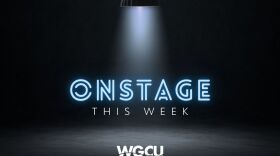People camping or sleeping in public places is now against the law in Florida.
Florida House Bill 1365 (HB 1365) took effect Tuesday and it prevents people from public camping or sleeping in public places. This includes public buildings and their grounds, public rights-of-way, sidewalks and streets.
Public camping or sleeping does not include residing overnight in a motor vehicle that is registered, insured and located in a place where it may lawfully be. The law does not forbid camping for recreational purposes on designated property.
Gov. Ron DeSantis signed the legislation on March 20. It went into effect on Oct. 1 — the start of a new fiscal year in Florida.
The bill aims to provide guidelines for local governments on how to manage public spaces and enforce laws concerning sleeping or camping in those areas.
The law requires cities to create alternate shelter options. Each county is trying to find ways to house its homeless people.
Lee County Human and Veteran Services and the Lee County Homeless Coalition are part of the Lee County Continuum of Care, which includes local governments, agencies, advocates and program users who collectively plan and implement programs to serve persons who are homeless or at risk of homelessness.
“The fact that we don't have an emergency shelter in Lee County is hurting our ability to be able to divert people into shelter, obviously because it doesn't exist,” Michael Overway, Executive Director of the Lee and Collier County Homeless Coalition, said. “Our goal is to try and get folks connected to housing and/or temporary housing as quickly as possible. And in that vein, Lee County Human and Veteran Services has been partnering with the homeless coalition and its continuum of care partners to ensure that there's opportunities to see that this is done.”
Collier County is working in collaboration with the Collier County Sheriff’s Office, St. Matthew’s House and the SWFL Homeless Coalition to address issues surrounding the homeless in the community and the implementation of HB 1365.
“[Collier] county government is working on bringing forward some houses that they own to help provide housing to homeless veterans, so they are looking at targeting a specific population,” Overway said. “The county is also collaborating with Warrior Homes of Collier and the homeless coalition in a grant application to apply for $5 million to acquire another building that will help house more homeless veterans.”
Some Southwest Floridians see both sides of the issue.
“On one hand, if that was me in that position, and I had nowhere to go, like, where am I going to go at that point?” Emma Stevenson, a Fort Myers resident, said. “And then I could also hear the argument from the community maybe, or people that do have housing that they don't have to worry about that, and are not really exposed to that environment, how they could just be like, ‘oh, we need to clean up Fort Myers.’ But I think if they're going do that, they probably need to have a plan in place for what they're going to do with those people that don't have anywhere to live.”
As with any law, local authorities get the job of enforcement.
“The Lee County Sheriff's Office will enforce all laws in the state of Florida,” Lee County Sheriff Carmine Marceno said. “In that, we believe in enforcement through education as the first step and will continue to provide resources to our homeless outreach team and push those in need of additional resources to those the county provides.”
The new law seeks to maintain public safety and order in community spaces.
“As for enforcement, we will enforce the law as detailed in the statute as we always do,” Karie Partington, Collier County Sheriff’s Office media relations bureau manager, said.
According to the Florida Coalition to End Homelessness, there are an estimated 31,462 individuals experiencing homelessness in Florida.
“It's just simply not right for people to be forced to sleep in a place they can't call home, and now they can't even sleep in places that are open to the public,” Slate Freeman, FGCU student, said. “So, it's this just a continuous loop of where people are homeless can’t sleep, and I don't know how Florida is using that as a way to fix it when it's just hurting society.”
WGCU is your trusted source for news and information in Southwest Florida. We are a nonprofit public service, and your support is more critical than ever. Keep public media strong and donate now. Thank you. Tori Foltz is participating in the WGCU News Path program.







